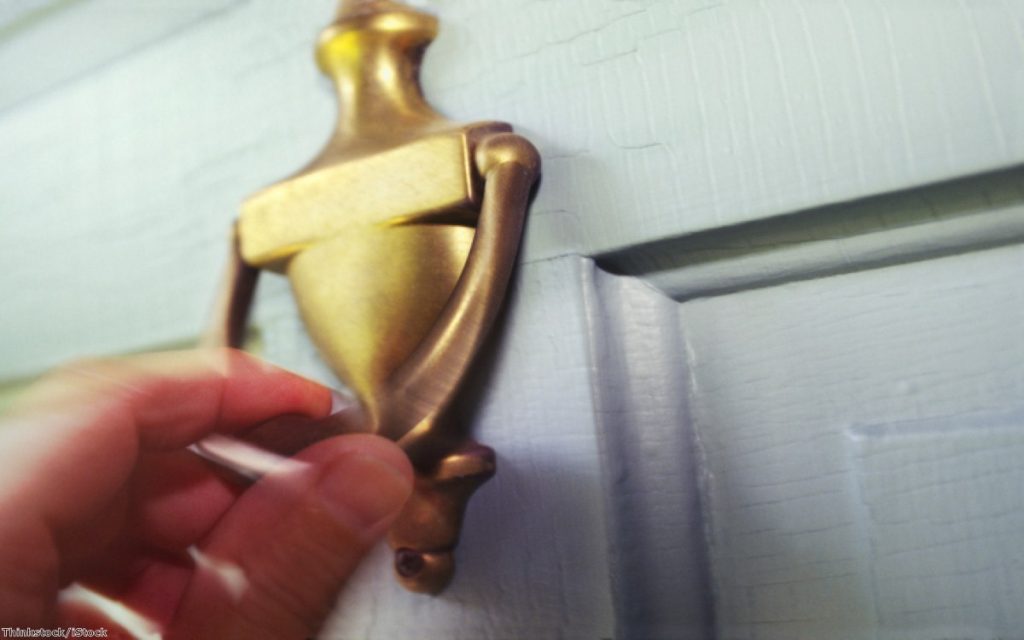The British state has 1,000 ways to get into your home
An Englishman's home is supposed to be his castle – so why has the coalition failed so miserably to defeat the small army of council officials who are legally entitled to invade yours?
This was supposed to be the government committed to rolling back the boundaries of the state and restoring citizens' civil liberties. Which is why today's revelations from Big Brother Watch that nearly 20,000 local authority staff are empowered to enter homes without a warrant are such an indictment of their failure.
On average 45 people per local authority have legally permitted powers of entry, its campaign of freedom of information requests has revealed. Those unfortunate enough to live in Northumberland in Leeds must deal with over 500 empowered officers. They are legally permitted to enter "defined premises" in order to carry out "specific purposes" like "undertaking an inspection, dealing with an emergency or searching for evidence during an investigation".
It doesn't sound great, does it? As a general rule, returning home to find your home has been invaded by hordes of council staff is not a vote-winner. This is why the Conservatives included a commitment to deal with the problem in their 2010 manifesto. They pledged to "protect people from unwarranted intrusion by the state" in all sorts of ways – including by "cutting back intrusive powers of entry into homes". With the Liberal Democrats committed to "a full programme of measures to reverse the substantial erosion of civil liberties and roll back state intrusion", the stage was set for real progress.


Fast-forward five depressing years, and what has the government achieved? The answer is: not much.
Great cartoon in the Daily Mail today on the @bbw1984 report http://t.co/B6ye8rUvqC pic.twitter.com/rlqnN04PWR
— Emma Carr (@EmmaFrancesCarr) January 16, 2015
The number of powers of entry has fallen from 1,237 to 912, leaving three-quarters of those previously in place untouched or consolidated.
Running an eye down the list of local authority staff with powers of entry, we find three licensing officials in Barnet; 19 staff empowered to deal with noise and pollution in Islington; 22 trading standards bods in Buckinghamshire; one accredited financial investigator in Norfolk; a contaminated land officer in Blackpool; 31 mental health professionals in Cornwall; and about 19,000 others lurking elsewhere.
This, in the view of Big Brother Watch's Emma Carr, is a bit of a let-down.
"Few people would expect that public officials would have the power to enter your home or business, often without a warrant or police escort. The general public have been left high and dry, at the mercy of an army of pen-pushers who can enter our homes as they please… the coalition has had almost five years to rectify this and all we have seen is handwringing and bureaucracy."
How did it happen? The usual civil service blocking machine seems to have been unusually effective, that's how. After the government passed the Protection of Freedoms Act 2012, the Home Office asked each department to ask whether its powers were still required. Should powers have any further safeguards to them? Could they be consolidated with other powers?
As Lord Vinson put it, this approach was having as much effect as "allowing a druggie to prescribe his own dose".
The Home Office hadn't got very far by January 2013, the time of the first progress report. Six months later it was becoming clear that departments weren't at all interested in repealing many powers. The Department for the Environment, Food and Rural Affairs decided it couldn't repeal any of its 59 powers relating to animal health, for example.
This was awkward, and the final reports made for depressing reading. "Ministers of each department have now concluded their reviews and prepared reports which will be laid before parliament today," minister James Brokenshire informed MPs. This wasn't quite right: four public bodies, including three government departments, hadn't even bothered publishing their reports at all. "Government is proposing a significant reduction in the overall number of powers," Brokenshire added, "which will leave a total of 912. But when you add at least 153 powers which Big Brother Watch says fall outside the scope of the review, you end up with a total that remains over 1,000.
It is a legacy libertarian-minded Tories should be deeply disappointed by. "Oppressive law leads directly to problems of enforcement; the Labour government has found itself deeply embroiled in trying to pass legislation which threatened personal liberty and the privacy of family and home," two Conservatives wrote while in opposition. They weren't David Davis or Dominic Grieve, though; this was none other than Geoffrey Howe and Keith Joseph writing about James Callaghan's government in 1977. Nearly four decades later, the problem has only grown bigger. And it's the Tories in government who have been letting ordinary people down.

